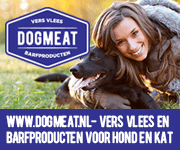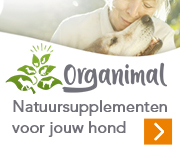Ter aanvulling:
Salmon feed on snails that carry
a fluke that contain a bacteria that is harmful if ingested by dogs. This complicated process is called "salmon poisoning" and occurs if a dog eats salmon raw. The salmon may be fresh caught, or found by the dog in refuse piles.
Any part of the raw salmon can contain these flukes and bacteria, but the head and "guts" contain the most....and are the discarded parts that dogs usually find near fishing areas and campgrounds. Freezing, cooking, and smoking kill this bacteria.
http://www.midtownanimalclinic.com/salmon.htm
~~~~Of:
What NOT to feed your dog
Raw Salmon
This information was posted to the AKITA-l list by Linda Wroth.
Here's a summary of info on salmon disease from the UC Davis Book of Dogs:
Salmon disease is specific to dogs and related canids and is found only in the Pacific Northwest [BC, too?], mostly in northern California and coastal Oregon.
It's an acute and rapidly progressing inflammation of the small intestine and colon that's often fatal, occurring shortly after a dog has fed on infected raw salmon or trout from coastal rivers and streams, or - less often - from hatchery-reared fish in reservoirs.
It's caused by one or both of two
rickettsial bacteria , _Neorickettsia helminthoeca_ and Elokomin fluke fever agent. Invertebrate hosts are important vectors of infection, most likely an aquatic snail that's an intermediate host for a fluke. The fluke leaves the snail and penetrates the tissues of salmonid fish, forming cysts. When an infected fish is eaten by a canid, the flukes and released and soon become egg-laying adults.
When the rickettsial bacteria causing salmon disease are in the fluke, they rapidly multiply in the canid's lymphatic system and then spread into the blood stream.
Symptoms are mainly a high fever with vomiting progressing to diarrhea and may resemble those of parvo. There is no vaccine. Freezing or proper smoking of the fish will lower infectivity. Treatment includes fluid and electrolyte therapy, blood plasma if necessary, and antibiotics, mainly tetracycline, to combat the rickettsiae.
http://www.phouka.com/dogs/dog_salmon.html





